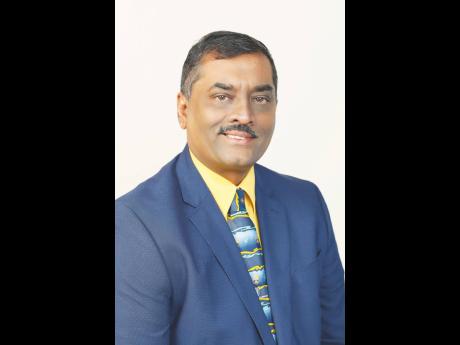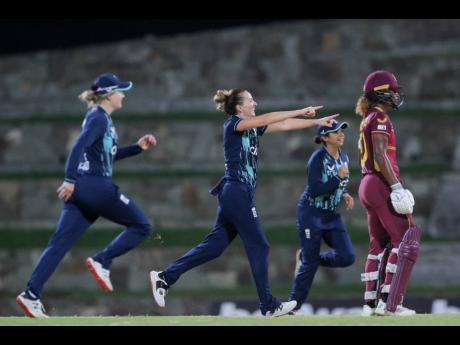The definition of insanity
Expecting different results from doing things the same way
THE LAST few weeks have been dismal for Women’s cricket in the West Indies. Perhaps the lowest point was the Under 19 Girls losing to Rwanda, a non-traditional cricket playing country. But this is followed closely by the Senior team losing a string of matches around the world. For a team that won the World Cup in 2016, its reflective of how sports has changed over this period.
Cricket has often been considered a leader among sports in the region and the fall of stature of the West Indies may be indicative of what is in store for other sports as well. Short of athletics, most other sports are struggling to maintain their position on the world stage. It is time to take heed and assess where we are and where the world stands.
No longer is talent alone the secret to success. Nor for that matter, are hours of repetitive training without in depth analysis of technique and biomechanics. This is where we are at risk – continuing to do things the same way.
Sports is now about talent identification, talent enhancement and analysis. Coaches are far more technology savvy and scientifically aware.
So let us examine the sports in the region for a start.
Cricket has slipped precipitously from a team that were not just champions of the world, but the most admired in the world, to becoming a footnote in any cricket discussion. Jamaica reached the World Cup Finals 25 years ago and Trinidad and Tobago, 13 years ago. Since then, both have struggled to maintain absolute dominance even in the region, as smaller islands are beating them with more regularity. Jamaica’s netball team, indisputably in the top three for decades, struggles to get into that category now. And this is reflected in other sports as well.
Outside of the region, countries start talent searches from as early as nine years of age, setting up academies that facilitate sporting and academic programmes that allow the children to study while enhancing their sporting talent. Scientific analysis in technique is matched with personalised age-specific training schedules that pay attention to the needs of that age, gender and body type. Nutritional support is provided and specialist medical management is ensured. And equally important, coaches who are well educated in the modern methods of coaching are employed.
These coaches are well trained in the specifics of the sport, the necessities of the athlete at each stage of their development, and most importantly, are able to access and appreciate the support specialists available: sports scientists, data analysts, sports doctors, sports physiotherapists, psychologists and nutritionists. Coaches are as much people and resource managers as they are technical specialists. Whereas this was only available to the most elite athletes in the past, it has now spread to the most basic level in almost all sports across the world in those countries serious about sport.
Unfortunately, we struggle to find this calibre of coach in the region. It has not gone unnoticed that the two appearances of West Indian countries in the Football World Cup were campaigns by foreign coaches. Nothing wrong with that. But the lack of any local coaches coming forward as a legacy of those campaigns is worrying. This is reflected in the handful of top cricket coaches, or any other sport for that matter.
We have stuck to mediocrity in producing our coaches; both in their academic development and their technical development. Whereas most places have highly educated coaches who have a grasp for modern coaching methods, we have only started producing a handful of coaches who even have a full first degree let alone any further qualifications.
As a Jamaican, I am extremely proud of our athletics success. As a West Indian, I marvel at how small countries have excelled at the highest level. But if we examine the success, there are a few things to consider. In Jamaica for example, there are many “traditional” track and field schools that win the local competitions. Yet they are disproportionately represented in our medal tallies in major athletics competitions, where most champions come from less well-known schools. In fact, if we remove success at national and regional competitions, the number of Jamaican coaches that have stamped their dominance on the world stage could be counted on one hand. Of course, these are some of the top coaches in the world, but they are in spite of the system, not products of. Most did not even attend any of the sports education colleges in the region. They are just geniuses.
Yet talented young athletes cannot gain access to these top-flight coaches until they leave high school. Till then, they are at the mercy of their high school coaches, who are not all versed with modern coaching methods or do not have access to them. So early talent management and progress is thwarted, contrary to what is happening around the world.
While we revel in our phenomenal sporting success, be warned that the gap between those who achieve with modern coaching practices and those who do not is widening progressively. Cricket is playing catch up and is having to start from a very low level. The catch-up game is affecting all other sports. Our sheer talent in sprinting allows those not weeded out by injury or poor coaching to reach our top coaches, when they should be far ahead of where they are. But how many are getting left behind?
While regional collaboration in enhancing sport is to be lauded, it is imperative that we also pay attention to upskilling our coaches and practices so that the best athletes come across the best development pathways as soon as possible.
If we continue to do things the same way, all sports may continue to fall the way cricket has.
Sport Pulse and Sport Matters are fortnightly columns highlighting advances that impact Sport. We look forward to your continued readership.
Dr Akshai Mansingh is Dean, Faculty of Sport, UWI. He can be reached at akshai.mansingh@uwi.edu



